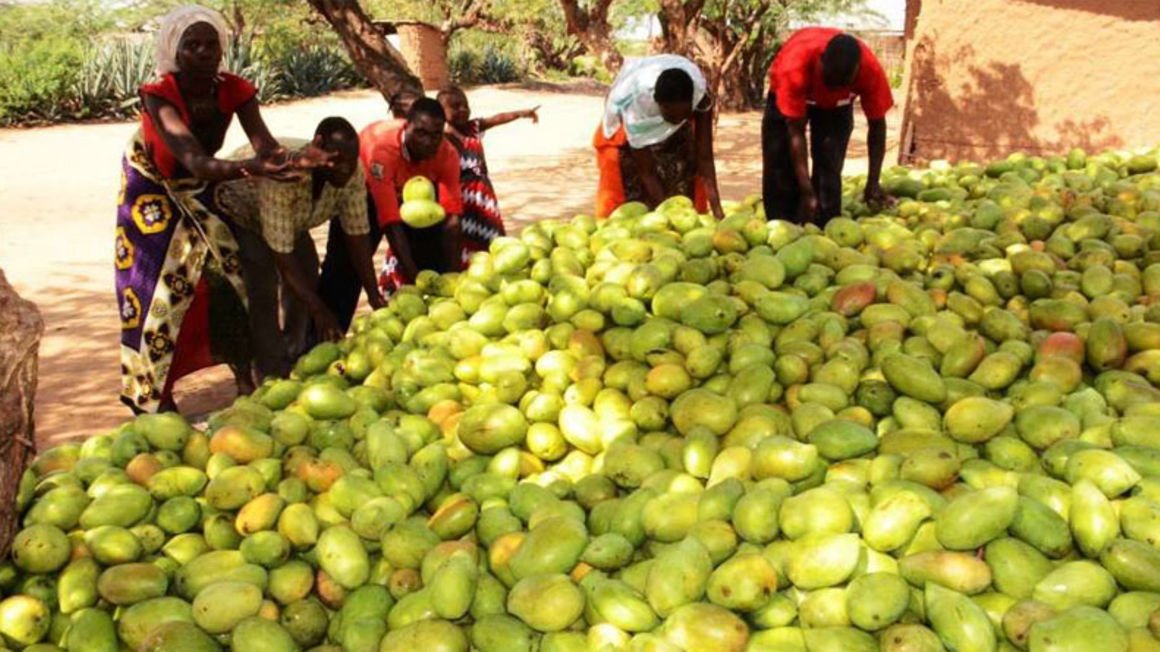Farmers gather mangoes harvested from a farm in Wachakone, Tana River County. FILE PHOTO | NMG Kenya will officially resume the multibillion mango export business to the lucrative European market in September after an eight-year self-imposed ban resulting from an outbreak of the fruit flies.
Europe has approved the resumption of exports of Kenya’s produce after the tests indicated low levels of insect incidence.
Kenya has instead been exporting mangoes to the Middle East but returns have been lower compared to what farmers would earn from EU states.
The move to resume exports to EU has been enabled by the creation of pest free areas that will guarantee mangoes being exported are free of flies.
“We have done a dry run and samples were submitted to EU and this was approved, putting us on the roadmap to begin mass export in September,” said Geoffrey Kiganiri, an official with USAID Kenya Crops and Market System.
says the country is ready to resume export because of the suppression of fruit flies.
Mr Wilfred Yako, the Directorate of Horticulture assistant director of regulations and compliance said Kenya is now set to return to the EU market following the initiatives that have been put in place.
“Since 2020, it has been established that the level of infestation has drastically gone down and this gives assurance that farmers will now access the EU market,” said Mr Yako.
The pest free zones have been established in Makueni and Elgeyo Marakwet counties. Makueni is largest producer of mangoes in the country, accounting for 31 per cent of the total production.
“If we meet the basic requirements for EU market and resume the export of mangoes as planned, this will raise the price from the current Sh5 to Sh30,” said Makueni county executive for agriculture Robert Kisyula.
Local mango and fruit farmers have been grappling with the fruit fly since 2003 when the pest was first reported in the country from Sri Lanka.
